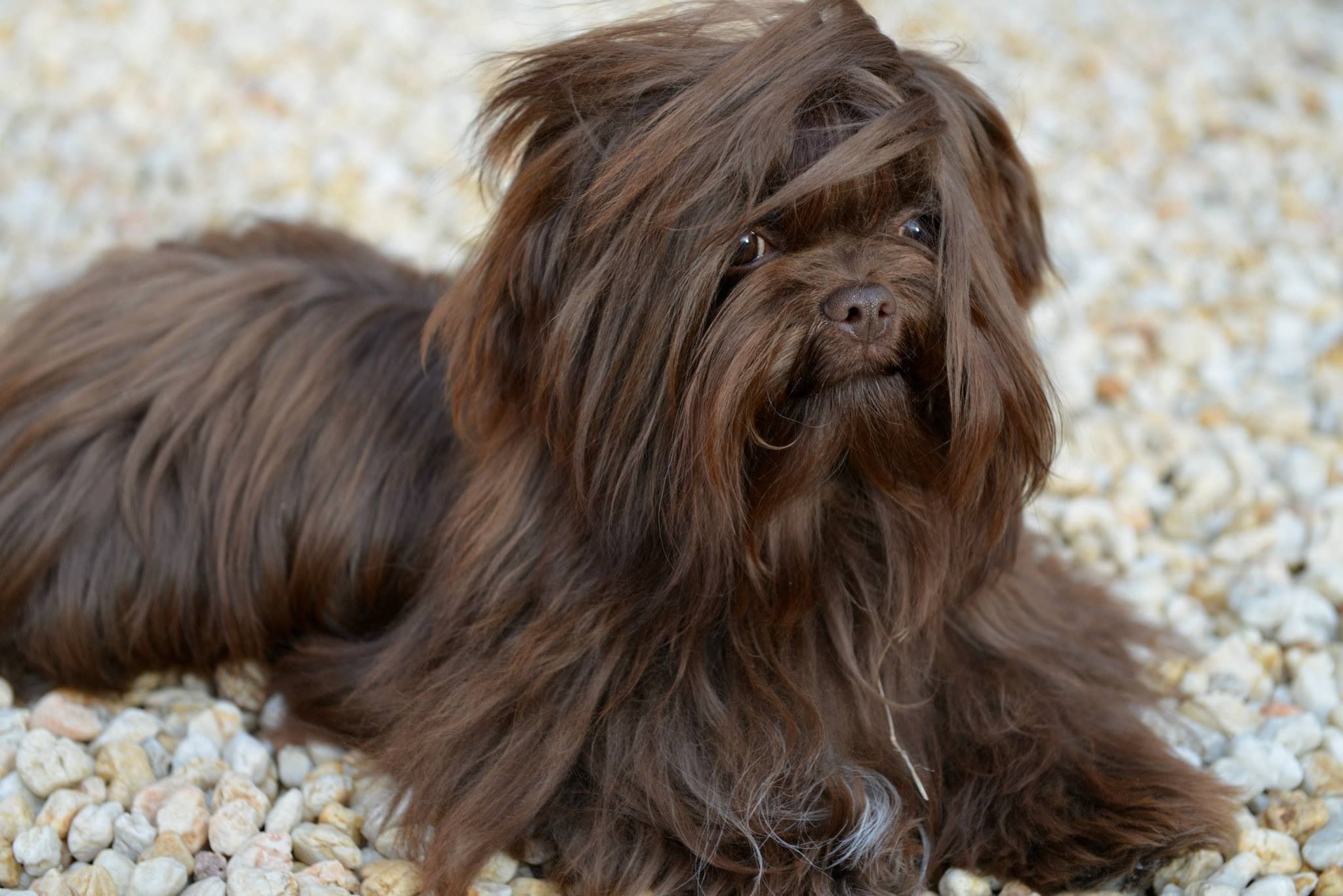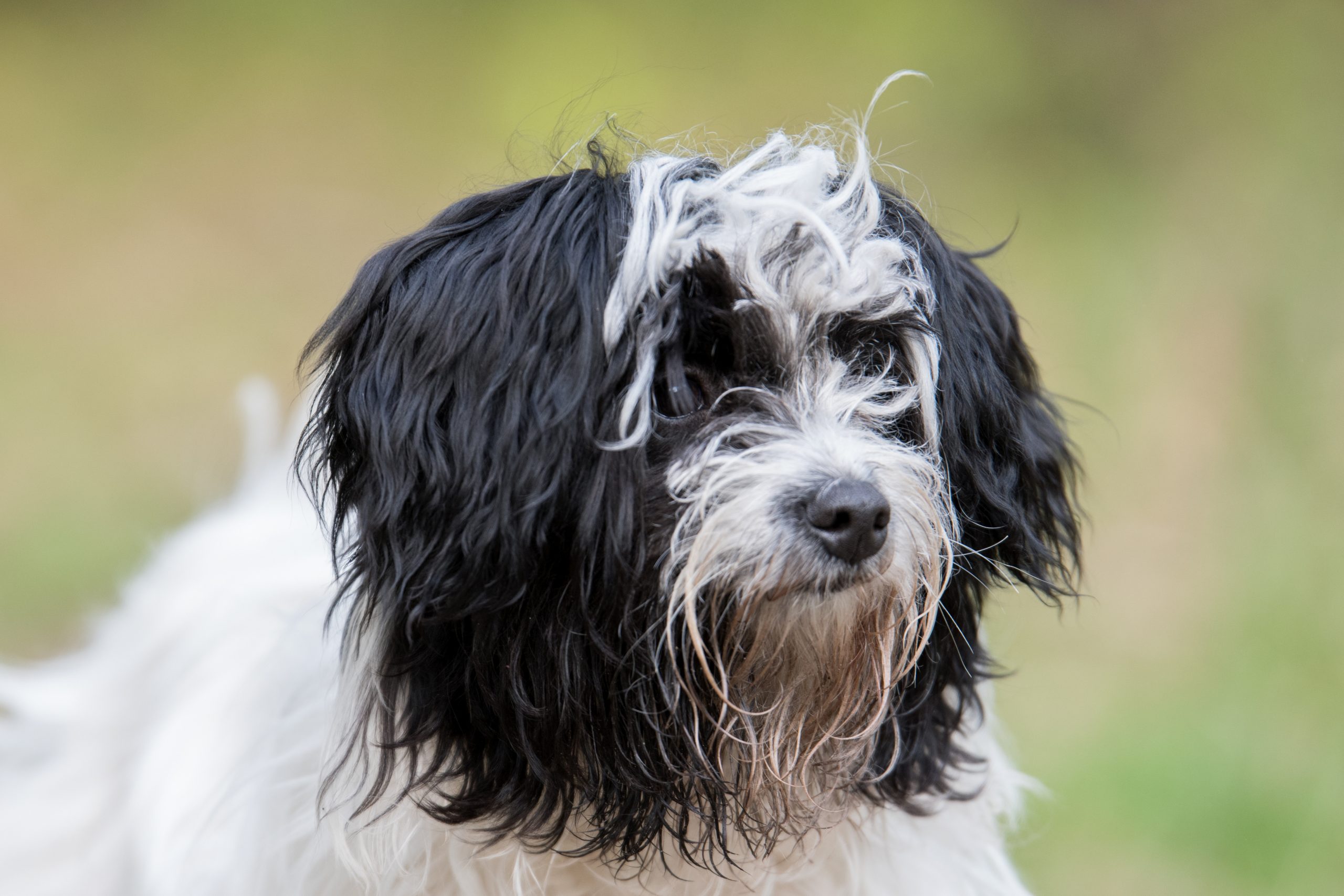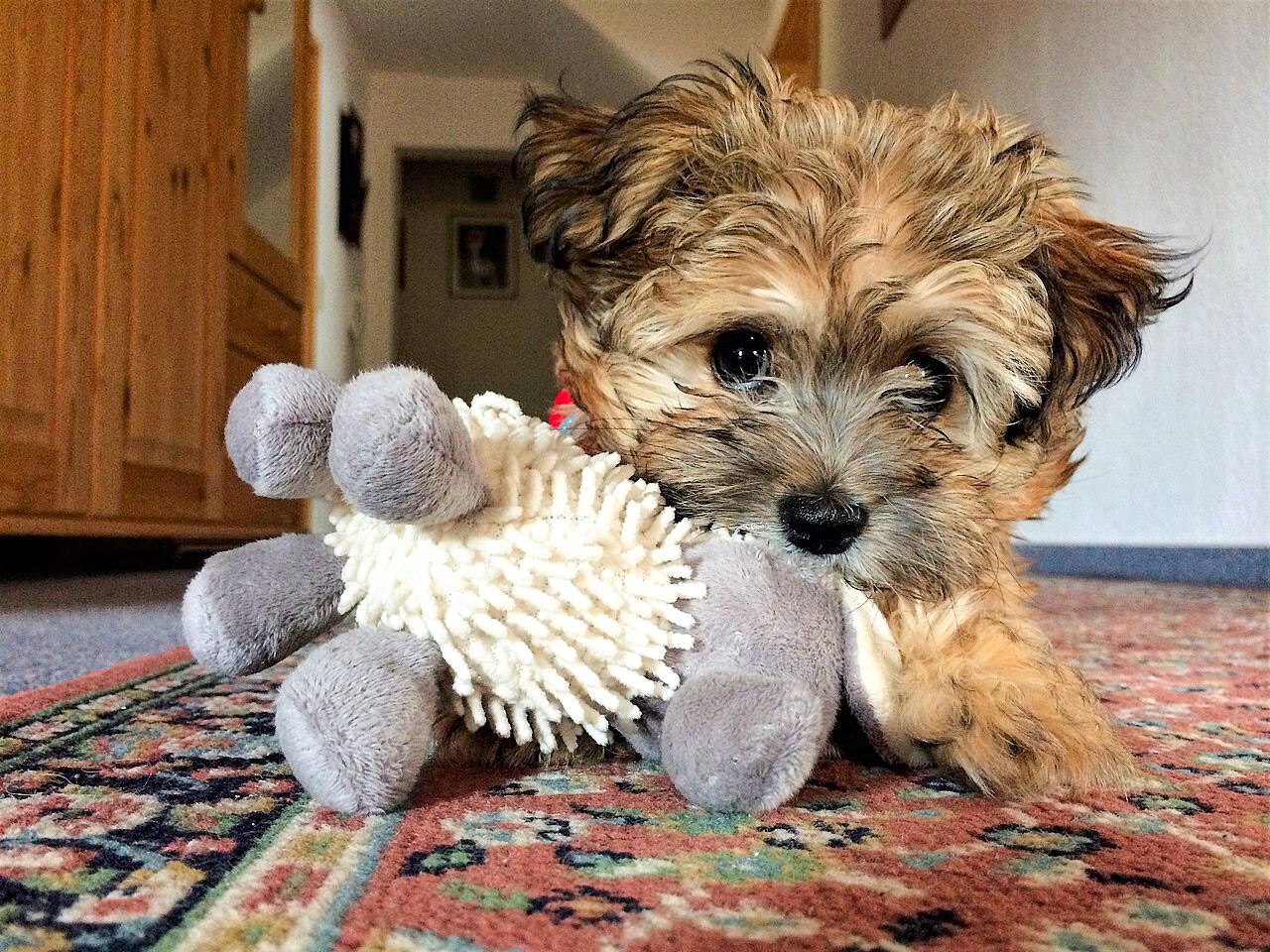Russian Tsvetnaya Bolonka: A Cheerful, Colorful Companion

History of Russian Tsvetnaya Bolonka
The Russian Tsvetnaya Bolonka, often referred to as the Russian Colored Bolognese, is a small and charming breed that originated in Russia. This breed was developed by crossing small terriers with the Bolognese and other small dogs, with the goal of creating a playful and affectionate companion dog. The breed was particularly popular in Russian nobility circles, known for its distinctive, colorful coats and cheerful personality.
Though it faced a decline in popularity after the Russian Revolution, the Russian Tsvetnaya Bolonka was later revived and is now gaining recognition in various parts of the world. It was officially recognized by the Federation Cynalogique Internationale (FCI) in 2009.
Popularity of Russian Tsvetnaya Bolonka
While still relatively rare outside of Russia, the Russian Tsvetnaya Bolonka has steadily gained popularity as a companion dog. Its adorable appearance and sweet nature have made it an increasingly sought-after breed in Europe, especially among those looking for a small, low-maintenance dog that can adapt well to apartment living.
Physical Traits of Russian Tsvetnaya Bolonka
The Russian Tsvetnaya Bolonka is a small, well-proportioned dog with a fluffy, soft coat and an alert, friendly expression.
• Height: 9–11 inches (23–28 cm)
• Weight: 7–10 pounds (3–4.5 kg)
• Build: Small and sturdy, with a compact frame
• Coat: Long, silky, and flowing with a soft texture
• Color: Wide variety of colors, including black, brown, cream, red, and brindle
• Head: Rounded with a short muzzle, expressive dark eyes
• Eyes: Dark, round, and expressive
• Ears: Medium-sized, hanging close to the head
• Tail: Carried over the back in a graceful curve
One of the most distinguishing features of the breed is its long, flowing coat that comes in a wide range of colors, making it a striking companion.
Behavioral Traits of Russian Tsvetnaya Bolonka
The Russian Tsvetnaya Bolonka is known for its playful, cheerful, and affectionate personality. It thrives in environments where it can receive plenty of attention and love from its family.
• Affectionate: This breed is deeply loyal to its family and enjoys being close to its human companions.
• Energetic: Full of energy, enjoys playing and running around but is also happy to curl up and relax with its owners.
• Alert: Though small, the Russian Tsvetnaya Bolonka is a good watchdog, alerting its owners to anything unusual.
• Friendly: Typically friendly with children, other pets, and strangers, making it a great family companion.
• Social: Enjoys the company of people and other dogs, not known to be overly territorial or aggressive.
The breed is generally described as a cheerful, happy-go-lucky companion, making it a delightful addition to a variety of households.

Why Choose a Russian Tsvetnaya Bolonka?
The Russian Tsvetnaya Bolonka is ideal for:
• Families with children, as it is gentle and tolerant
• Apartment dwellers or those with limited space, as it is small and adaptable to various living conditions
• Seniors or individuals seeking a low-maintenance dog with a cheerful disposition
• First-time dog owners who want a companion that is easy to train and social
However, it may not be ideal for:
• People looking for a dog that can tolerate rough handling or excessive independence
• Owners who prefer a dog that can be left alone for long periods as the Russian Tsvetnaya Bolonka thrives on human interaction and companionship
• Those with allergies: While the breed’s coat can be considered hypoallergenic, its grooming requirements may still be a challenge for some.
Caring for Your Russian Tsvetnaya Bolonka
The Russian Tsvetnaya Bolonka has relatively simple care requirements, but its long coat does need attention to keep it healthy and tangle-free.
• Exercise: Moderate; daily play sessions and walks will keep it fit.
• Training: Intelligent but can be somewhat independent. Consistent, positive reinforcement methods work best for training.
• Grooming: The long coat requires regular brushing, ideally every other day, to prevent tangling and matting.
• Living Environment: The breed is adaptable to apartment living but should have access to a small yard or space to run and play.
• Feeding: Feed a high-quality dog food appropriate for small breeds, ensuring it gets the necessary nutrients for its size.
Though generally low-maintenance compared to some other breeds, the Russian Tsvetnaya Bolonka will thrive with regular grooming, a healthy diet, and consistent attention.
Health Considerations
The Russian Tsvetnaya Bolonka is a generally healthy breed but can be prone to certain health issues:
• Patellar luxation (kneecap dislocation)
• Eye issues, including cataracts
• Dental problems, as with many small breeds
Its lifespan is typically 12 to 14 years, and with proper care, it can live a long, healthy life.

Comparisons to Similar Breeds
• Bolognese: The Bolognese and Russian Tsvetnaya Bolonka share similar ancestry, but the Bolonka has a wider variety of colors and a more refined, smaller build.
• Maltese: Like the Maltese, the Russian Tsvetnaya Bolonka has a silky coat and affectionate nature, but the Maltese is more prone to separation anxiety and has a more demanding temperament.
• Shih Tzu: Both breeds have a similar appearance with long, flowing coats, but the Russian Tsvetnaya Bolonka is generally easier to groom due to its less dense fur.
Is the Russian Tsvetnaya Bolonka Right for You?
If you are looking for a small, cheerful companion that is playful and easygoing, the Russian Tsvetnaya Bolonka might be the perfect fit for you. It is an excellent choice for those who want a dog that is both affectionate and lively while still being manageable in an apartment or small home.
However, prospective owners should be prepared to provide regular grooming and ensure their dog gets the attention and exercise it needs to stay happy and healthy.
Getting a Russian Tsvetnaya Bolonka
When looking to acquire a Russian Tsvetnaya Bolonka, it’s important to find a reputable breeder who prioritizes the health and temperament of the dogs. This breed can also benefit from microchip registration and health monitoring to ensure a long, healthy life.
United Pet Club offers resources for microchip registration, grooming tips, and health management to ensure your Russian Tsvetnaya Bolonka thrives.
